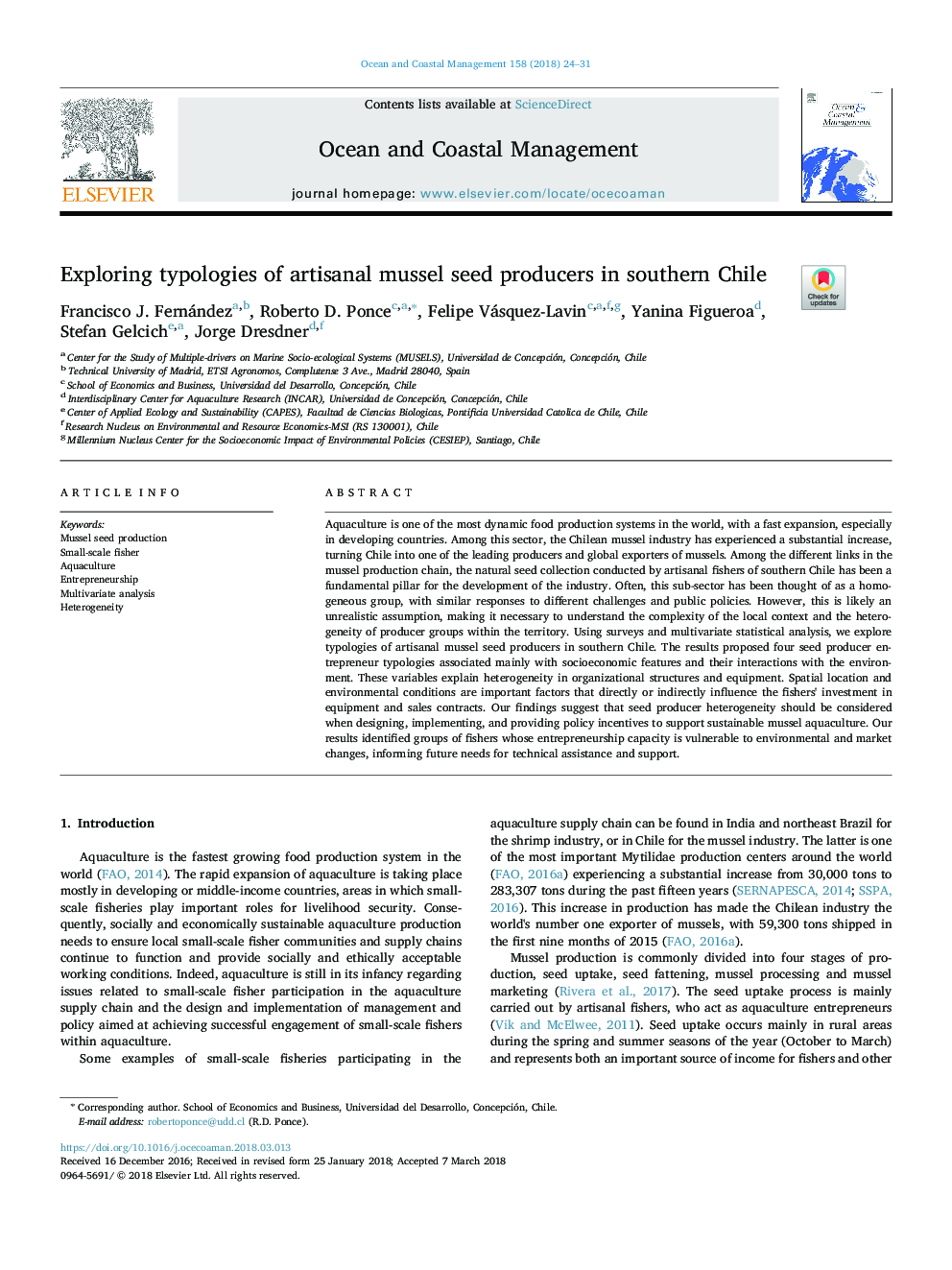| Article ID | Journal | Published Year | Pages | File Type |
|---|---|---|---|---|
| 8060679 | Ocean & Coastal Management | 2018 | 8 Pages |
Abstract
Aquaculture is one of the most dynamic food production systems in the world, with a fast expansion, especially in developing countries. Among this sector, the Chilean mussel industry has experienced a substantial increase, turning Chile into one of the leading producers and global exporters of mussels. Among the different links in the mussel production chain, the natural seed collection conducted by artisanal fishers of southern Chile has been a fundamental pillar for the development of the industry. Often, this sub-sector has been thought of as a homogeneous group, with similar responses to different challenges and public policies. However, this is likely an unrealistic assumption, making it necessary to understand the complexity of the local context and the heterogeneity of producer groups within the territory. Using surveys and multivariate statistical analysis, we explore typologies of artisanal mussel seed producers in southern Chile. The results proposed four seed producer entrepreneur typologies associated mainly with socioeconomic features and their interactions with the environment. These variables explain heterogeneity in organizational structures and equipment. Spatial location and environmental conditions are important factors that directly or indirectly influence the fishers' investment in equipment and sales contracts. Our findings suggest that seed producer heterogeneity should be considered when designing, implementing, and providing policy incentives to support sustainable mussel aquaculture. Our results identified groups of fishers whose entrepreneurship capacity is vulnerable to environmental and market changes, informing future needs for technical assistance and support.
Related Topics
Physical Sciences and Engineering
Earth and Planetary Sciences
Oceanography
Authors
Francisco J. Fernández, Roberto D. Ponce, Felipe Vásquez-Lavin, Yanina Figueroa, Stefan Gelcich, Jorge Dresdner,
